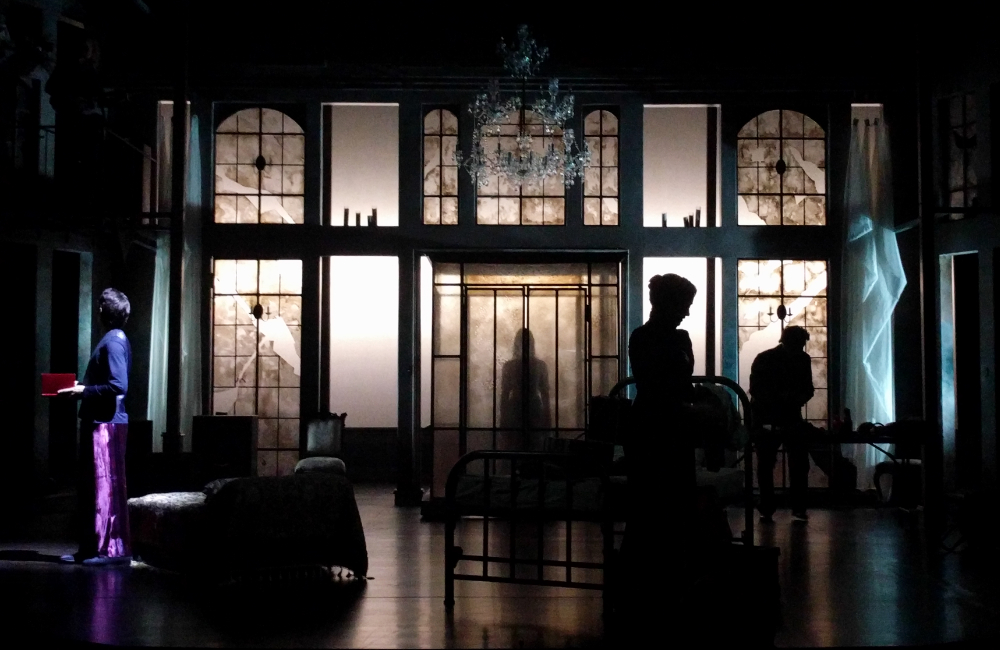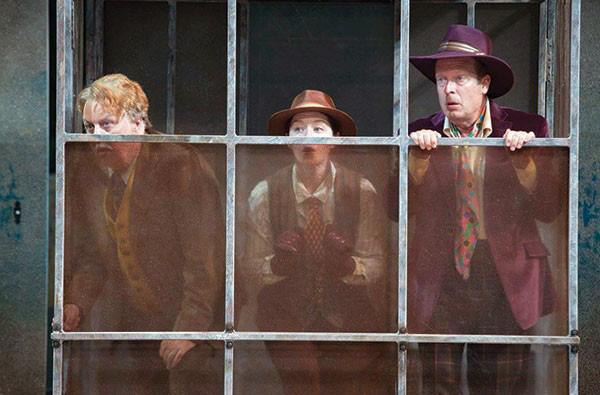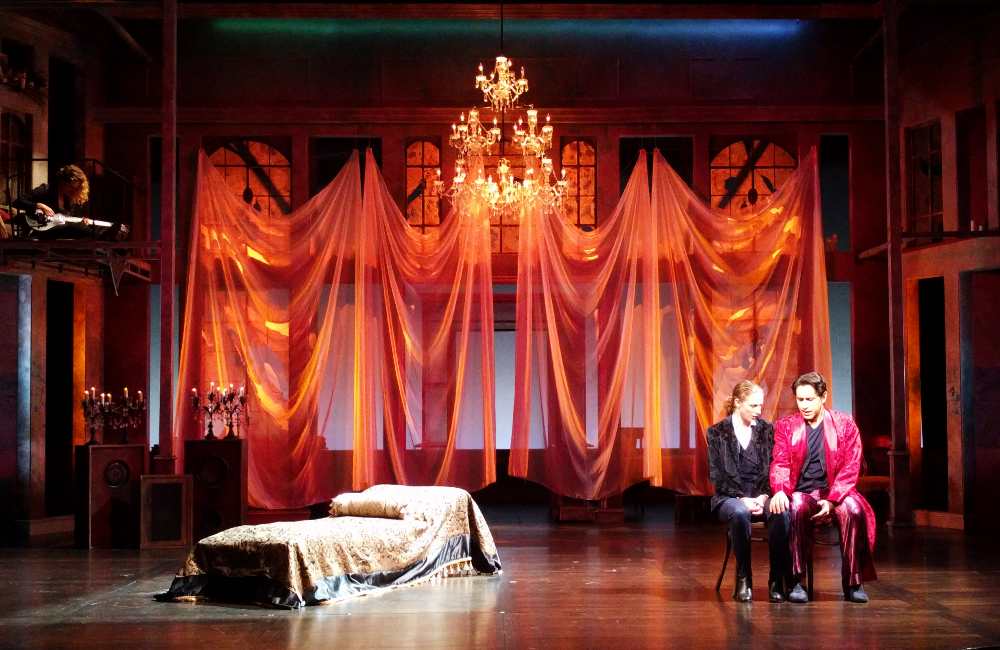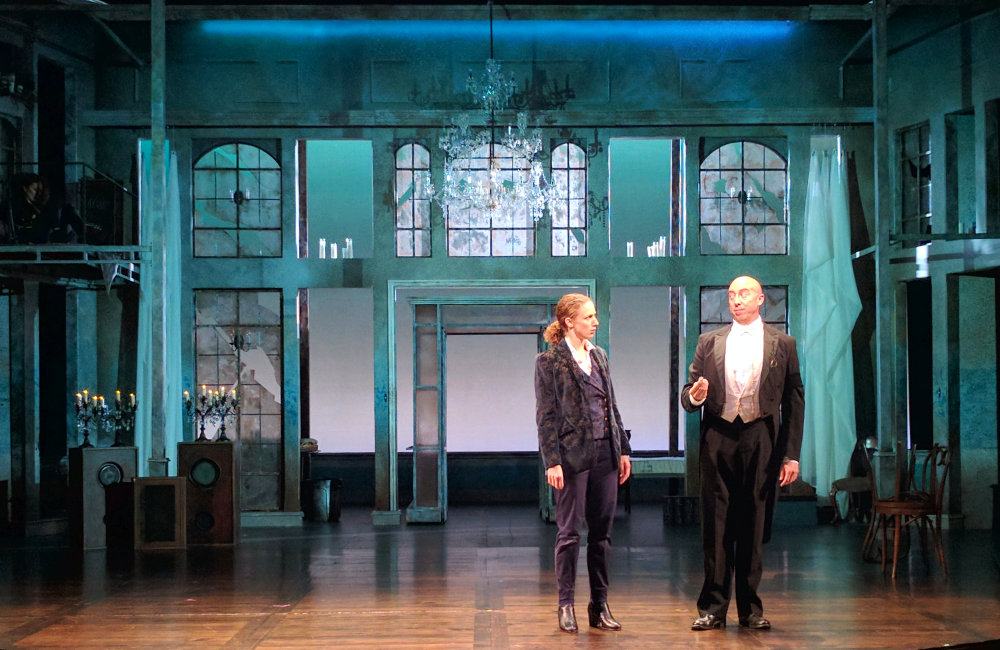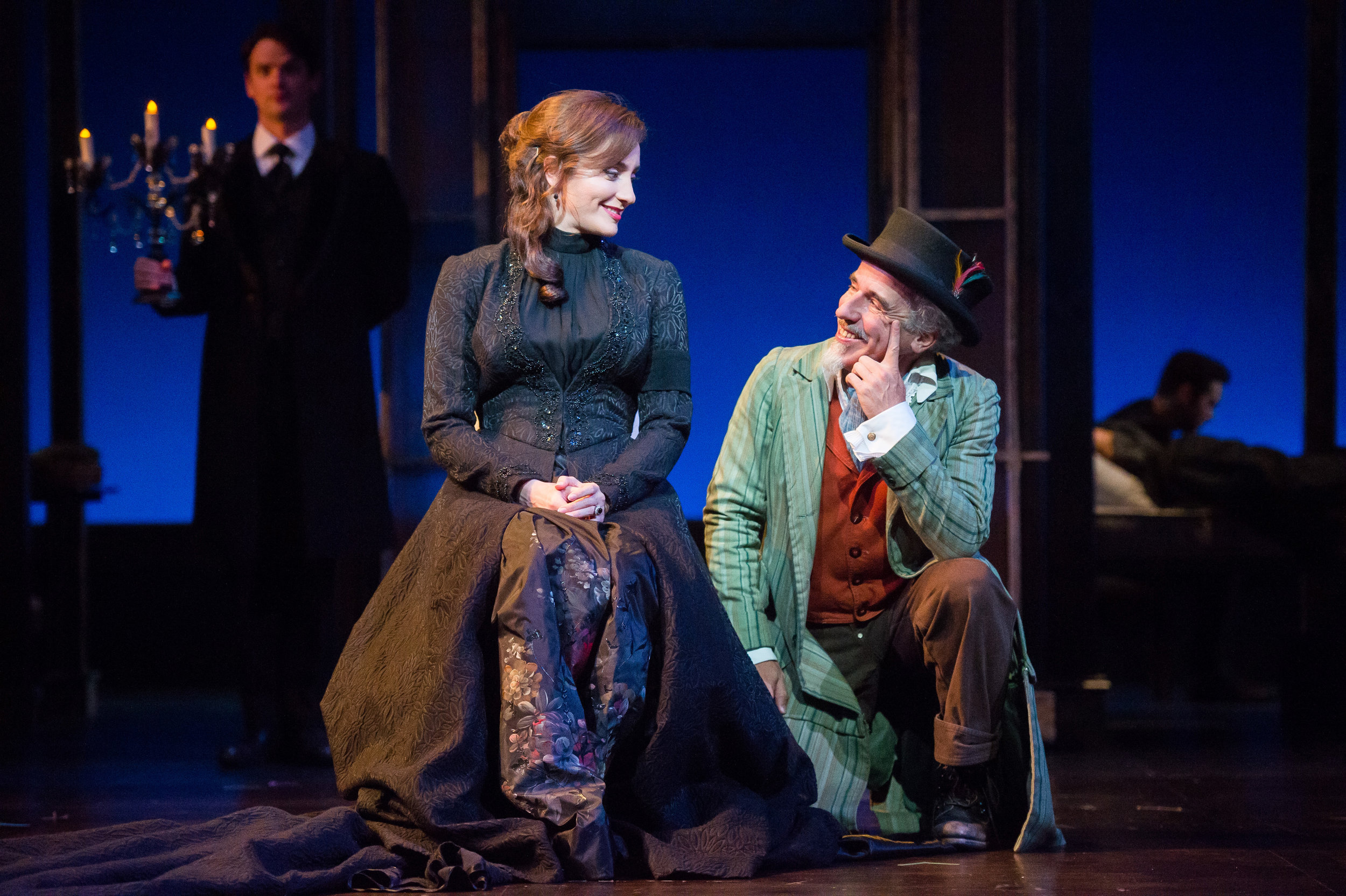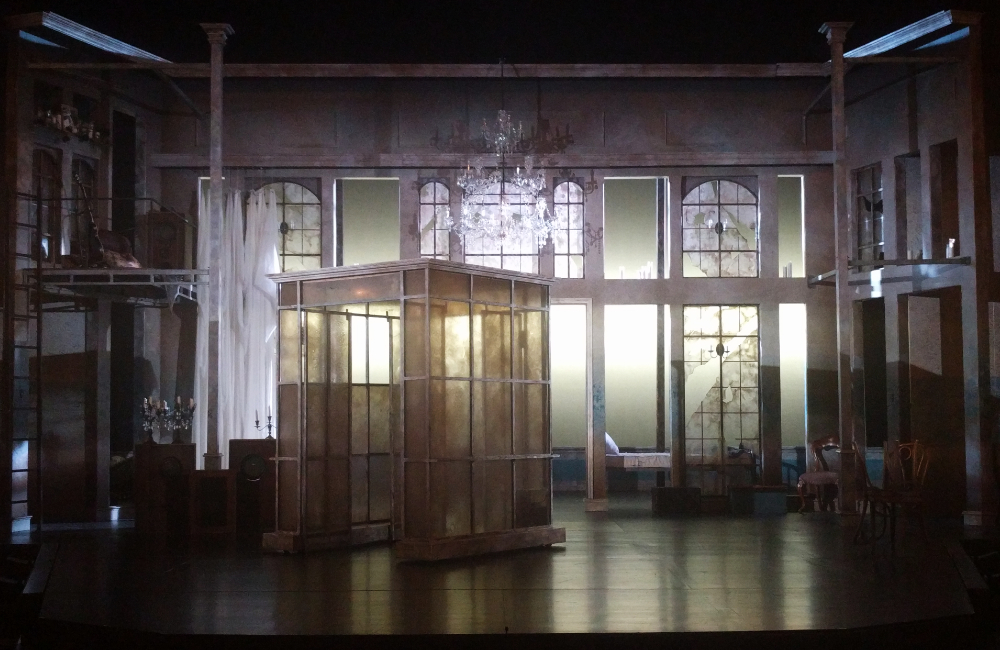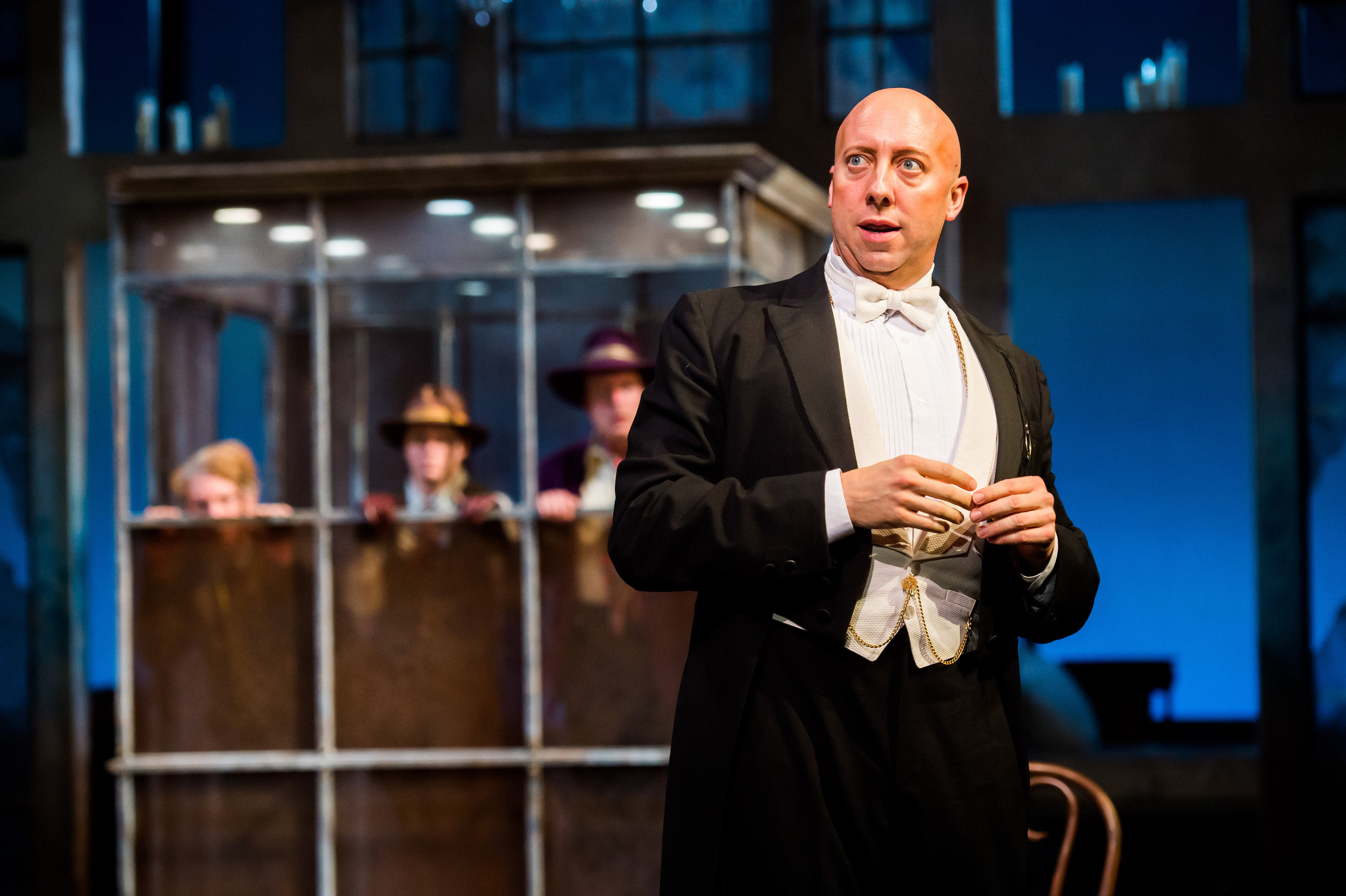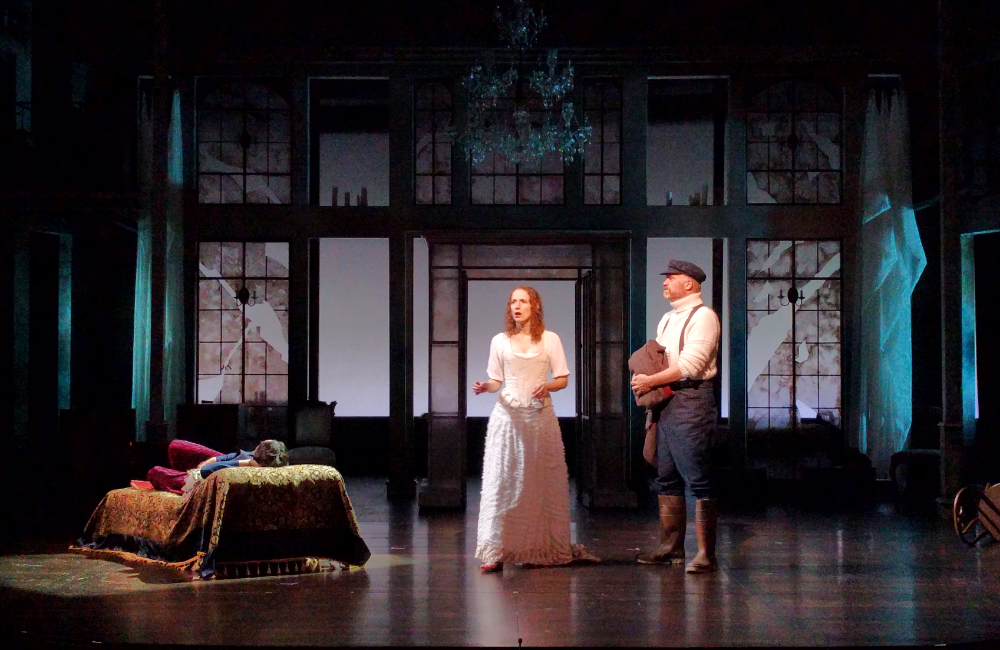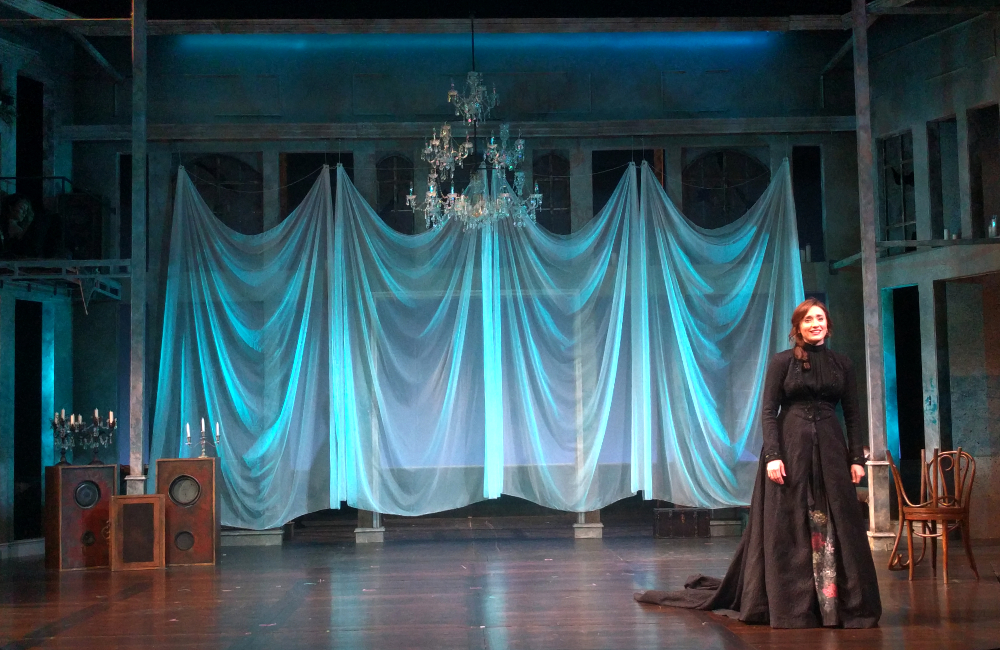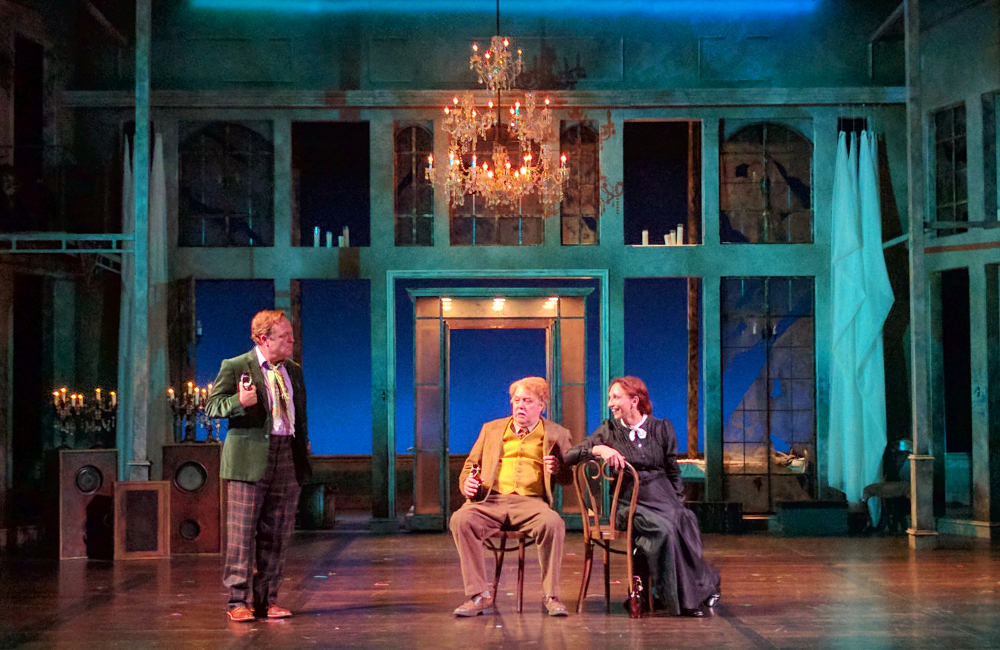TWELFTH NIGHT
Set Design: Russell Metheny | Lighting Design: Rick Martin
Costume Design: Kim Krumm Sorenson | Composer: Daniel Kluger | Sound Design: Lee Kinney
Scroll down to read Drew's director's note for Twelfth Night at Great Lakes Theater.
Twelfth Night by William Shakespeare | Director's Note
The first record of a production of Shakespeare’s Twelfth Night, or What You Will comes from the diary of John Manningham, a student of law, who saw the play performed in the hall of Middle Temple on 2 February 1602. It is unknown whether there had been previous performances of the play. One fact remains certain: the number of people since John Manningham who have seen, read, acted in, staged or analyzed Twelfth Night is essentially unfathomable.
Like the insatiable sea to which it alludes, the play attracts admirers with its beauty and humor; then it threatens to overwhelm them with the scope of its imagistic detail and psychological mystery. The text’s erotically-charged mixture of romantic fantasy and domestic realism conjures a world of wonder-filled possibilities and status-bound limitations. Juxtaposing exquisite pangs of loss and longing with exuberant declarations of carnal appetite, Shakespeare invites us to imagine a place called Illyria, where hope and fantasy collide with hunger and desire. What the protean citizens of Illyria do and say in one scene seldom adheres to their professed intentions in another. Bound together in service and society, they echo each other in provocative and perplexing ways.
“What are you? What would you?” the Countess Olivia asks of the Duke Orsino’s intriguing emissary, Cesario. Questions of identity and intent reverberate throughout the play, as issues of perception and desire increasingly cloud characters’ ability to distinguish between illusion and reality. As the ever-shifting perspectives accumulate, Twelfth Night reveals how “what you will” largely depends upon who you are; while, who you are is inescapably linked to how people perceive you.
Given its intrinsic mutability, Twelfth Night supports a wide variety of interpretations. In its history of performance, the play has seen more than its fair share of adaptations, rearrangements and abridgments. Star turns have been fashioned out of many of its characters, while specific bits of stage business have become so attached to certain scenes that actors and directors must carefully weigh the benefits versus risks of bucking tradition. Perhaps more than any of Shakespeare’s plays, it profits from exposure to multiple productions, as recollections from past experiences haunt and inform the present. If one viewing of the play evokes a particular judgment, rest assured that a second may upend that certainty.
With his elusive wit and his enigmatic characters, Shakespeare repeatedly challenges us to hold two opposing ideas in our heads at one time. He urges us to make peace with seemingly irreconcilable differences. Besides the timely conversations the play provokes about gender identity and the fluidity of love, Twelfth Night, or What You Will confirms a shared humanity across the ages, linking audiences of today to the audience at Middle Temple in 1602. Imagine what John Manningham would have to say about that.
-Drew Barr
